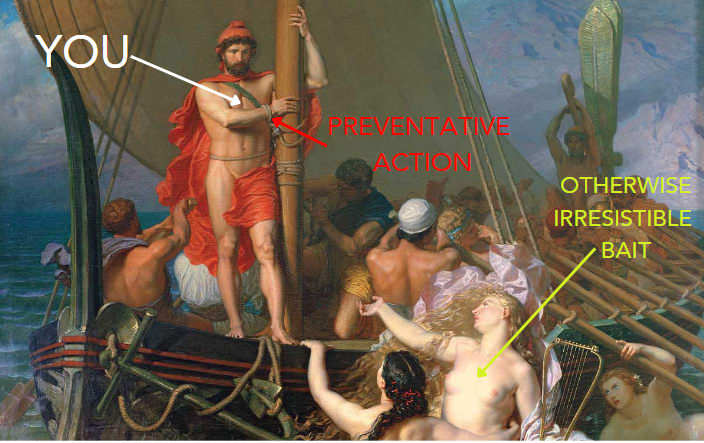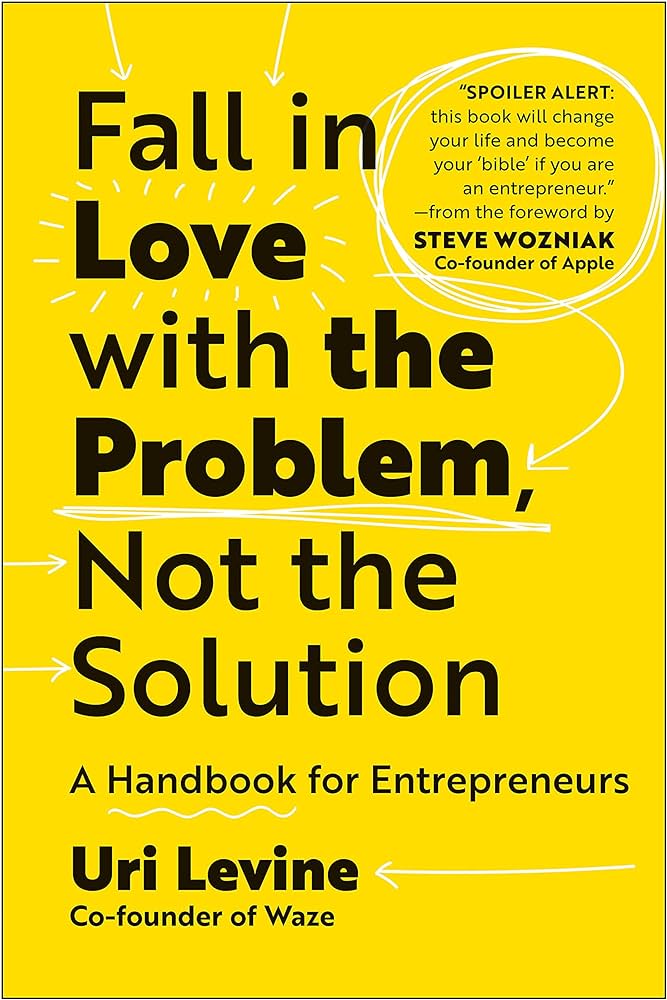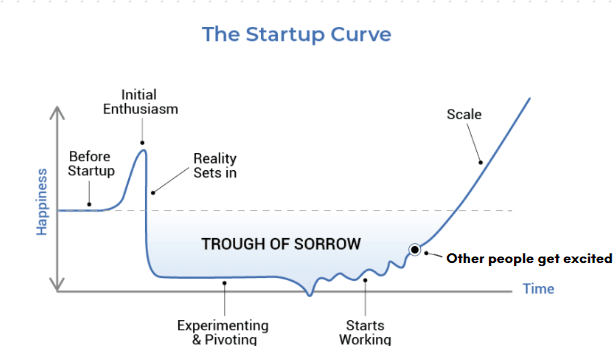Traps that doom your new org
By John Salter @ 2023-10-26T20:44 (+37)
The early bird gets the worm, but the second mouse gets the cheese. I am the "first mouse" who lived, covered head to literal tail in sprung traps, crawling onto your forum feed to inform you of the dangers ahead. It's especially relevant for bootstrappers.
WTF is a Bootstrapper?
Someone who's starting an organisation without capital of any kind.
Why should I listen to you?
I am leagues ahead of any competition. Nobody comes close to me. I am EA's uncontested leading expert on being baited. I have personally fallen for ALL of these baits, often multiple times, despite sound advice being freely available online.
Anatomy Of Bait and Anti-Bait
Baits score high in both attractiveness and fatality, whereas anti-baits score negatively in both.

It is the kernel of truth within the bait that makes it so alluring. The logic just seems so intuitive and inarguable. However, through decades of collective entrepreneurial experience, we've learned them to be both false and deadly. Antibaits are the exact opposite - more on them later.
The Tier List
S-Tier: Tie yourself to the mast, lest the sirens drown you
These baits are so savage that you should actually take preventative action long ahead of time.

I'll be able to build a better founding team if I get some traction first
You will get MUCH more interest once you've built some traction, from bigger names with 'better' CVs. However this is actually BAD:
- The expectation that it will be agonising and unlikely to work selectively repels grifters, status chasers, risk-intolerants, and other horrible cofounders.
- Some irrational need to work on the cause is necessary because it's going to brutally hard for YEARS IF NOT DECADES.
- It will look hopeless over and again. You need people who won't bail just because it looks bad.
- Most people would jump to join something starting to resemble a rocket ship, so your applicant pool gets flooded with unsuitable people who strongly resemble suitable people.
How to prevent
Recruit your founding team early. Pick irrepressible people who are value-aligned, open to ideas, learn quickly, and inspire emotional resilience in those around them. Start with your friends/colleagues. If nobody fits, go do related projects with strangers and see who you work well with.
Scaling quickly is a sign of success
It just feels so obviously a sign of success to have more people signing up and contributing. After all, more people means more work hours which means more stuff done, right? Wrong. This is a sign of impending doom. Scaling fast implies you're scaling something that hasn't been properly tested. Worse still, it makes changing things nightmarish.
- The average strength of each person is likely weaker
- The cultural fit of each person is likely weaker
- It becomes harder to know what's happening because you're busy managing people, or god forbid managers, likely for the first time, on top of whatever else you have to do
- Scaling necessitates hierarchy, which creates a huge problem. Every 'tier' introduces a link in the Chinese whisper chain which is organisational communication. Everyone misrepresents things to their managers, who will then misrepresent these misrepresentations to their managers, and so on. By the time it reaches you, the signal is a garbled mess. Oh, and this repeats itself in reverse when you respond to these signals down this same chain. There are ways around this but they're costly.
How to prevent
Set stringent prerequisites for scaling long before you reach that point. Before going ahead with it, seek guidance from an experienced entrepreneur.
Falling in love with your solution

I'm sorry to break it to you, but your 'solution' probably sucks. There are dozens of reasons why it'd never work that will become clear when it is exposed to reality. That's OK though, because the idea never really mattered. It's the team and the problem.
Instead of the "solution", fall in love with the problem. Stick with her when all others have abandoned her. Learn everything there is to know about her, and the real solution will often fall into your lap.
A-Tier: Waste YEARS
My idea can't be tested cheaply

Yes it fucking can.
Overwhelmingly, the most comprehensive and persuasive test is to try out your idea on a hilariously small scale. Unless you're benefiting from nepot/longterm-ism, good luck getting anything funded without having empirically tested your assumptions.
If you can't test the entirety of your idea, rate its parts by "susness" and "cost to test". Divide "susness" by "cost to test" to prioritise tests by cost-effectiveness. Key point: The way to work out how sus something is to prospective funders / collaborators is to talk to them; don't try to read their minds.
We need to be persuasive

Consider yourself. How often do you actually change your mind on anything major? How many of those times were because someone tried to persuade you of it? A few times a year maybe? Now consider this: as an effective altruist, you are freakishly open to new ideas and reasoned arguments.
Humans detect attempts at persuasion with Jedi-like consistency. Counterarguments appear in our minds which we identify with much more strongly than we do with the words entering our ears and we actually leave feeling LESS convinced than had they had said nothing.
You do need to sell people on your ideas, but persuasion is not how you do that. Time is finite. Persuasion is slow and prone to back-firing. What you actually want to do is to disqualify people as quickly as possible, and move on to the next conversation. Finding people predisposed to liking your idea is the aim, not persuading people to like it. For the predisposed, remove all barrier to comprehending your idea; your pitch should be extremely clear and concise.
B-Tier: Waste MONTHS
Advisor collection
Usually, advisors play a small role and they confer way less social proof than you'd think. Funders mostly care about the team itself and their traction thus far.
Credibility cascading
It's indeed possible to gain tons of credibility very quickly if you actively pursue it. However, your credibility will grow faster than your true expertise and you'll likely go on to cause net harm. Further, credibility << traction in terms of getting funding/partnerships etc. Don't get distracted.
Fuck credibility; get traction.
Hiring freelancers
It'll be so much faster if we just hire an expert, I thought. It'll save me so much time and effort that I can use on things that I can't delegate, I thought. This is oft a surefire way to fuck yourself.
- Freelancers don't share your objectives; they want your money and a good review. They're incentivised to tell you what you want to hear, and show you what you want to see, rather than give you something that'll actually solve your problem long-term.
- You probably don't know exactly what you want yet. Doing the creation forces you to really nail down exactly what is needed, and you're likely depriving yourself of that.
- It takes a long time to explain the context to someone who doesn't understand your project.
- Hiring freelancers and managing them well is a skill in and of itself and it takes time to learn.
- You'll probably have to iterate on whatever is created, meaning you'll have to keep on paying and waiting on the freelancer to execute.
Let's copy [Big prestigious organisation / competitor]

If it was this easy to build an incredible organisation, then everyone would be doing it. The proportion of projects that go on to be extremely impactful is extremely low. If you're doing what everyone else is doing, you're definitely fucked. Think for yourself. Fail. Improve your thinking. Repeat until you find something that works.
C-Tier ("Virtuous"-bait)
These baits are good to fall for, so long as you have a good idea and the ability to execute. If we knew how hard it would when we started we'd have given up, so believing some of these is a somewhat of a prerequisite.
How hard can it be?

The answer is C. No matter how simple your idea, the moment it makes contact with reality you are going to be slapped with implementation issues - logistics, getting people to do what they say they would, shit you never dreamed would be an issue.
It's such an good idea, I can't believe no-one else is doing it
Overwhelmingly, you're going to find that:
- You're solving a problem that doesn't exist
- You're solving a problem nobody cares that much about
- Other people have tried and failed
- You haven't found your real competition yet (hint: look at what job the user is hoping to get done. Is there any way of doing that besides your solution?)
Once I have X, it'll be so easy [P(X = Stable Funding)> 90%]
This is the false glimmer of hope that keeps you from saturating your pillow with salty tears on the nightly. False hope > no hope, so I'll say no more.
F-Tier
Prioritise plans that are low-status, unpleasant, and uncomfortable
Ignore tasks that don't make your key numbers go up
This is a surefire way to make sure that what you're working actually matters.
Just release something crappy, we'll fix it later.
Two big reasons
- Instantly upon exposure to reality, most ideas die. Kill them before you get too attached.
- Designing without real-world feedback is a fool's errand; there is more complexity than you could ever fathom. You'll learn so much more doing it for a real, even if your project is laughably small, than you would theory crafting in your ivory tower.
Meh, it's just smoke. We can ignore that.
There's no time to investigate smoke when there are fires raging. If there are no fires raging, you're moving too slowly.
Key exception: if your cofounder/team is smoking, treat that as a SuperMegaUltraGigaFire, especially if they are agreeable.
I don't care if it doesn't scale, I'm doing it anyway
"Do things that don't scale" is one of the greatest writings all of entrepreneurship. Read it, watch it, or regret it.
Caveats so I don't get lynched
The above is advice for getting your project to work, but beware Pyrrhic victories. Context is key, and your mileage may vary. The hardest thing is that there are many many situations where these "baits" are actually good ideas, and "antibaits" actually bad ones. Please use this guide to identify decisions that you should think harder about, and not follow it over a cliff.

